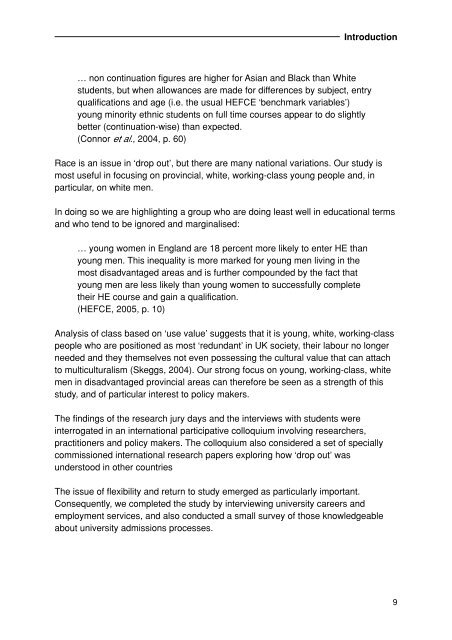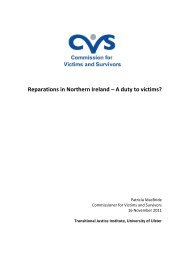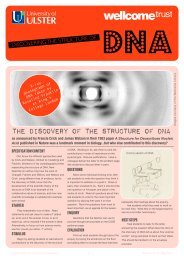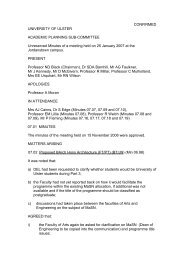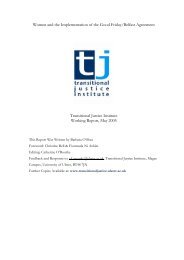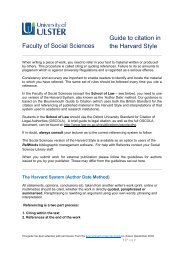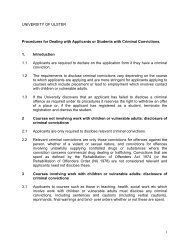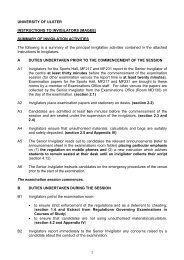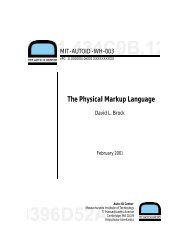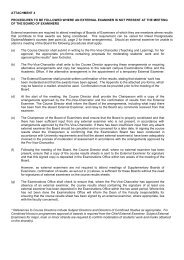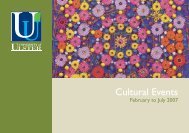From life crisis to lifelong learning: Rethinking working-class 'drop out'
From life crisis to lifelong learning: Rethinking working-class 'drop out'
From life crisis to lifelong learning: Rethinking working-class 'drop out'
You also want an ePaper? Increase the reach of your titles
YUMPU automatically turns print PDFs into web optimized ePapers that Google loves.
Introduction<br />
… non continuation figures are higher for Asian and Black than White<br />
students, but when allowances are made for differences by subject, entry<br />
qualifications and age (i.e. the usual HEFCE ‘benchmark variables’)<br />
young minority ethnic students on full time courses appear <strong>to</strong> do slightly<br />
better (continuation-wise) than expected.<br />
(Connor et al., 2004, p. 60)<br />
Race is an issue in ‘drop out’, but there are many national variations. Our study is<br />
most useful in focusing on provincial, white, <strong>working</strong>-<strong>class</strong> young people and, in<br />
particular, on white men.<br />
In doing so we are highlighting a group who are doing least well in educational terms<br />
and who tend <strong>to</strong> be ignored and marginalised:<br />
… young women in England are 18 percent more likely <strong>to</strong> enter HE than<br />
young men. This inequality is more marked for young men living in the<br />
most disadvantaged areas and is further compounded by the fact that<br />
young men are less likely than young women <strong>to</strong> successfully complete<br />
their HE course and gain a qualification.<br />
(HEFCE, 2005, p. 10)<br />
Analysis of <strong>class</strong> based on ‘use value’ suggests that it is young, white, <strong>working</strong>-<strong>class</strong><br />
people who are positioned as most ‘redundant’ in UK society, their labour no longer<br />
needed and they themselves not even possessing the cultural value that can attach<br />
<strong>to</strong> multiculturalism (Skeggs, 2004). Our strong focus on young, <strong>working</strong>-<strong>class</strong>, white<br />
men in disadvantaged provincial areas can therefore be seen as a strength of this<br />
study, and of particular interest <strong>to</strong> policy makers.<br />
The findings of the research jury days and the interviews with students were<br />
interrogated in an international participative colloquium involving researchers,<br />
practitioners and policy makers. The colloquium also considered a set of specially<br />
commissioned international research papers exploring how ‘drop out’ was<br />
unders<strong>to</strong>od in other countries<br />
The issue of flexibility and return <strong>to</strong> study emerged as particularly important.<br />
Consequently, we completed the study by interviewing university careers and<br />
employment services, and also conducted a small survey of those knowledgeable<br />
about university admissions processes.<br />
9


